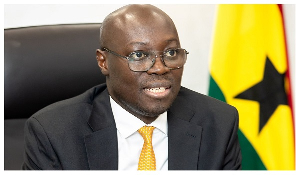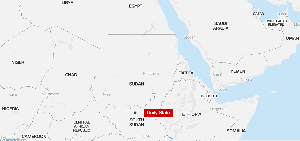Given Ghana’s current funding gap for its preparedness to effectively tackle the novel coronavirus outbreak, government will have a option to tap into the International Monetary Fund (IMF) and the World Bank financing packages which have been allocated to this emergency situation for use in countries that lack adequate finance themselves.
Both institutions have made available a total of US$ 62 billion as an emergency financing package.
According to the World Health Organisation (WHO), the total budget required for Ghana’s preparedness with regard to the novel coronavirus stands at GHS 35 million. However, the government of Ghana, faced with severe fiscal constraints, has only committed GHc 2.5 million to support preparedness.
The IMF has made available about US$50 billion through its rapid-disbursing emergency financing facilities for low-income and emerging market countries that could potentially seek support. Of this, US$10 billion is available at zero interest for the poorest members through the Rapid Credit Facility.
The World Bank, on its own part, has made available under its COVID-19 support package, initial crisis resources of up to US$12 billion in financing — US$8 billion of which is new — on a fast track basis. This comprises up to US$2.7 billion new financing from IBRD; US$1.3 billion from the International Development Assistance (IDA), complemented by reprioritization of US$2 billion of the Bank’s existing portfolio; and US$6 billion from the International Finance Corporation (IFC), including US$2 billion from existing trade facilities. It will also include policy advice and technical assistance drawing on global expertise and country-level knowledge.
Government has admitted that there is the need for additional funding which will be required to implement the remaining requisite activities at the national level. Currently, Ghana is among 13 priority countries in Africa identified as being at high risk of getting the virus because of their established links with China.
So far, the Ridge Hospital and the Tema General Hospital have been earmarked as case management centres. Four other facilities: the Ga East Hospital, the Police Hospital, the LEKMA Hospital and the Korle-Bu Teaching Hospital have been identified as additional facilities to support case management.
Technical support visits have also been undertaken by the Institutional Care Division (ICD) of Ghana Health Service and WHO to some designated facilities to assess preparedness. Staff at the two identified treatment centres have also been given preliminary training in case management.
Ghana currently has testing capabilities for the virus at the Noguchi Memorial Institute for Medical Research and the Kumasi Centre for Collaborative Research. These centres have handled 24 suspected cases so far, all of which have turned out negative. However, with neighbouring Nigeria – which has close economic and social ties with Ghana – having joined the list of afflicted nations, the conventional wisdom is that it is only a matter of time before the virus afflicts Ghana too.
Health News of Monday, 9 March 2020
Source: goldstreetbusiness.com

















